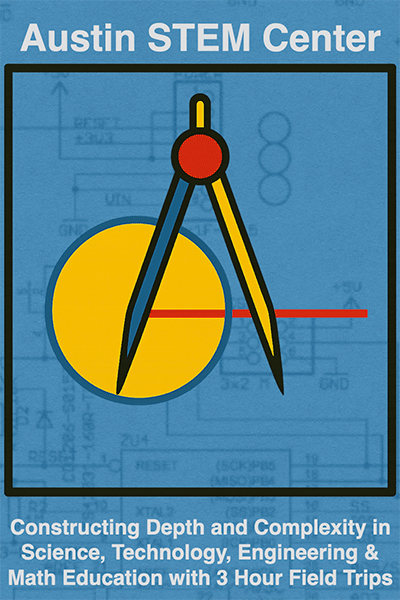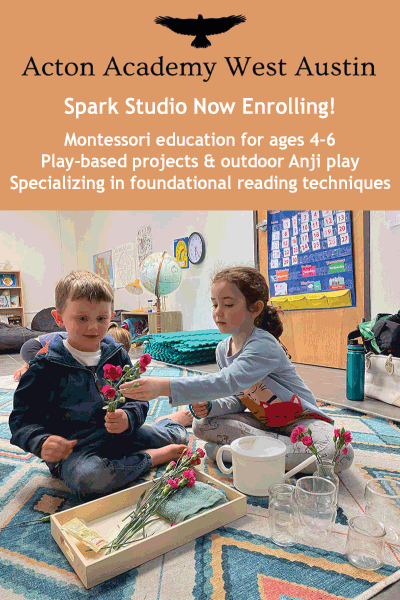Reversing dyslexia? A response from Dr. Books
/In guest contributor Shari Holland’s review of the recent book Reversing Dyslexia, she voices several common concerns about author Phyllis Books’s unusual claims. Upon Alt Ed Austin’s invitation, Dr. Books has responded to Ms. Holland’s critique. We encourage you to join the conversation by leaving a comment below.
 Dr. Phyllis BooksThank you so much for the opportunity to address the comments from Shari Holland regarding my first book. There are points on which Shari and I agree. For example, I think it is fair to say we both agree that dyslexia, as well as many other learning challenges, and indeed our overall health and well-being, respond well to good lifestyle habits, which include adequate sleep, healthy eating, and a good balance of work and play. It is easy to take these natural methods for granted or even dismiss their importance.
Dr. Phyllis BooksThank you so much for the opportunity to address the comments from Shari Holland regarding my first book. There are points on which Shari and I agree. For example, I think it is fair to say we both agree that dyslexia, as well as many other learning challenges, and indeed our overall health and well-being, respond well to good lifestyle habits, which include adequate sleep, healthy eating, and a good balance of work and play. It is easy to take these natural methods for granted or even dismiss their importance.
The Hawthorne Effect, which she discusses, is another area of agreement. Positive psychology, placebo studies, even studies on plants, all point out the importance of a positive framework to seed a positive outcome. Before I work with children, I have parents agree with me about who is responsible for what during our time together. One tenet is for the parent to keep an open mind and to hold the space for the child to change. There are many factors (such as getting decent nutrition, sufficient exercise, and enough sleep) that I have no control over but ultimately affect the long-term success of Books Neural TherapyTM (BNT).
Shari writes, “Dr. Books seems to contradict herself about whether dyslexia is reversible. At one point, she writes that dyslexia may not be permanent.” The very fact that I have no control over variables mentioned above is reason for me to not make 100 percent guarantees. I willingly affirm that I have an 85 percent success rate, which, as my brochures and other literature say, is based on questionnaires gathered from clients six to ten years after treatment.
There are, however, several points I would like to correct or on which I would like to offer another view:
Shari states that she “found the organization of the book confusing and the logic muddled.” And “[I use] ‘dyslexia’ interchangeably with so many words describing learning challenges it’s hard to understand why [I] used dyslexia in the title.”
I have a degree in English and a master’s degree in communication, and my first thought was to find her comment disconcerting were it not for the fact that my publisher, who has been very successful over the past thirty years in publishing books written by professionals, chose to develop the chapters in a formula that works for most readers.
Upon further reflection, I wonder if some of the uncertainty she experienced about the title might not be caused by what the publisher left out of the contents of my book as originally submitted. My original book, before the publisher put the editing crew on it, was more of a “how to” guide for parents. The subtitle “Improving Learning and Behavior without Drugs” still reflects my original intention with the book; however, much of the content morphed into a different kind of book. The publisher thought it best that my first book help establish me as a neutral expert in the field of dyslexia by explaining the whole playing field of dyslexia—describing the larger context of dyslexia, its many facets, and ways dyslexia can affect someone’s life—and offering insight and suggestions for addressing the various forms of dyslexia and issues the family member might be dealing with at any particular age. In the published content, I can see how she might mix up the definition of dyslexia, the definition of the various other diagnoses that may or may not accompany dyslexia, and the various ways children handle the emotional issues that so often accompany dyslexia.
Dyslexia is not a one-dimensional issue, which is one of the main points of the book. As Dr. Fred Pescatore, a New York–based integrative physician and author of several books on children’s health, states in the foreword to my book, “Dyslexia is not simply having difficulty with reading and writing. It is a disorder that permeates a person’s entire life, promoting all sorts of unwanted symptoms, from poor organizational skills to behavior and attitude problems.”
Shari writes, “If dyslexia is reversible, why talk to parents about choosing a tutor or a college that caters to dyslexic students?”
Actually, that was also my first response when my publisher insisted on adding a chapter on schooling, tutoring, and extracurricular activities. His response was wise: “You don’t know when people are going to pick up your book. Their child may be about to enter college when they first see your book. You need to meet people where they are. And since you aren’t there in person, you have to consider all possible situations, not just if their children have access to you at an early age.”
Shari wonders why I wrote the book if it wasn’t to promote my own therapy.
The preface says: “I wrote this book to dispel the myth that dyslexia is permanent. The idea that learning disorders are unchangeable is simply untrue, and it harms children. . . . I also wrote this book to open minds to a new way of looking at dyslexia, to create empowered advocates for dyslexic kids, and to make sure individuals get the help they need to dismantle the problem of dyslexia for good. Most of all, I wrote this book to help free the human spirit—the spirit that still lies inside every dyslexic person and begs to be unchained.”
Final thoughts: I’m passionate about my work with children, and I love my life. My life is geared around helping children become healthy, happy, and self-reliant—and to be free enough to usher their dreams into reality.
It takes a new mindset to believe there is hope for your dyslexic child, especially when “the experts” have ingrained the idea that it is permanent. My book may not be accepted well by people who want to hold onto their old beliefs. Even Einstein said, “I have all the new facts about quantum mechanics. I just don’t want to believe it.”
“Whether you think you can or you can’t, you’re right” is a statement very apropos with regard to dyslexia. If you believe and choose to hold onto your belief that dyslexia isn’t reversible, it won’t be. Not because that belief is true, but because your child will pick up on your belief—the belief of traditional education and the medical model which are embedded with the concept that dyslexia is permanent.
“We should never wait for science to give us permission to do the uncommon; if we do, then we are turning science into another religion. We should be brave enough to contemplate our lives and move ‘outside the box’ and do it repeatedly” (Dr. Joe Dispenza in Evolve Your Brain). I encourage all parents to be brave enough to follow their own internal compass. You know your child better than any expert. Scientific studies don’t trump your own truth, and no two dyslexics are alike. Seek help wherever you can. Believe in your own ability to choose wisely. Keep looking for ways to bring out your child’s highest potential. Believe in your child. The world needs you both.
Dr. Phyllis Books















